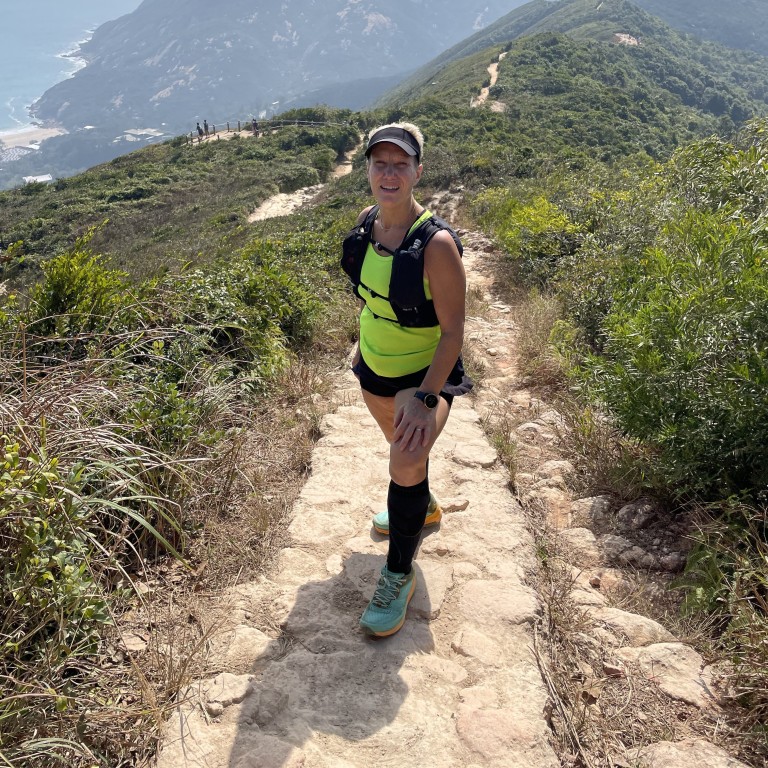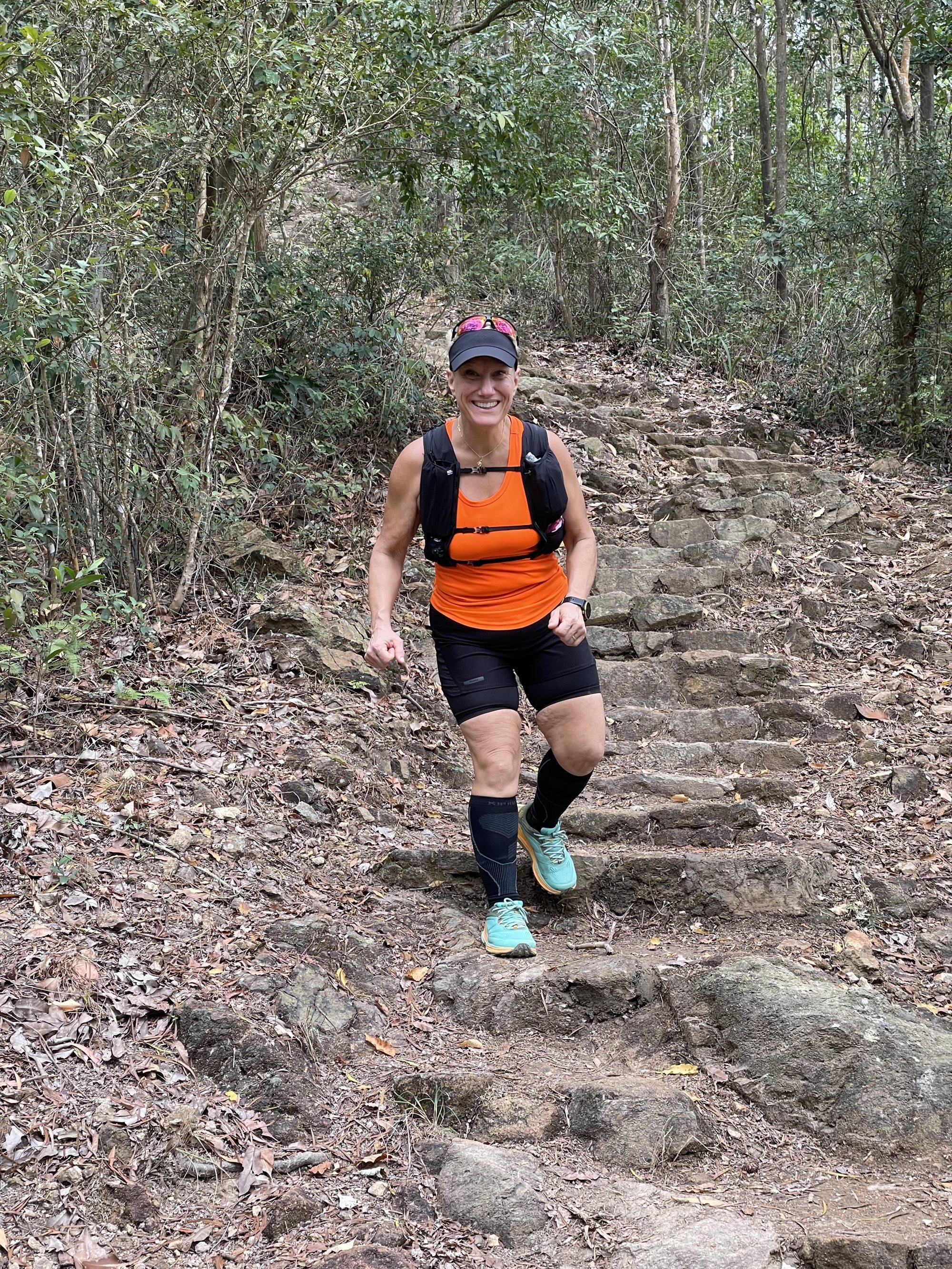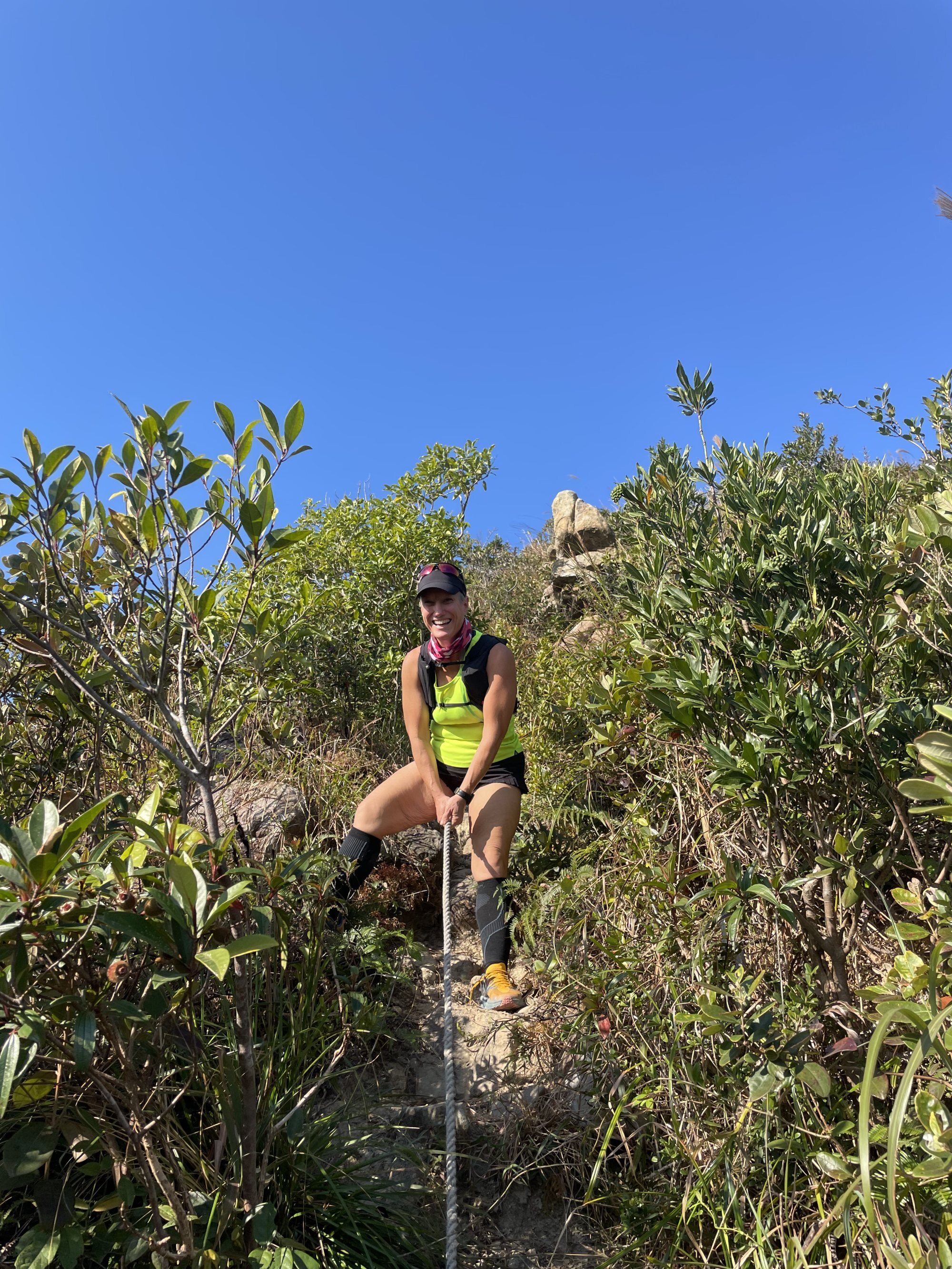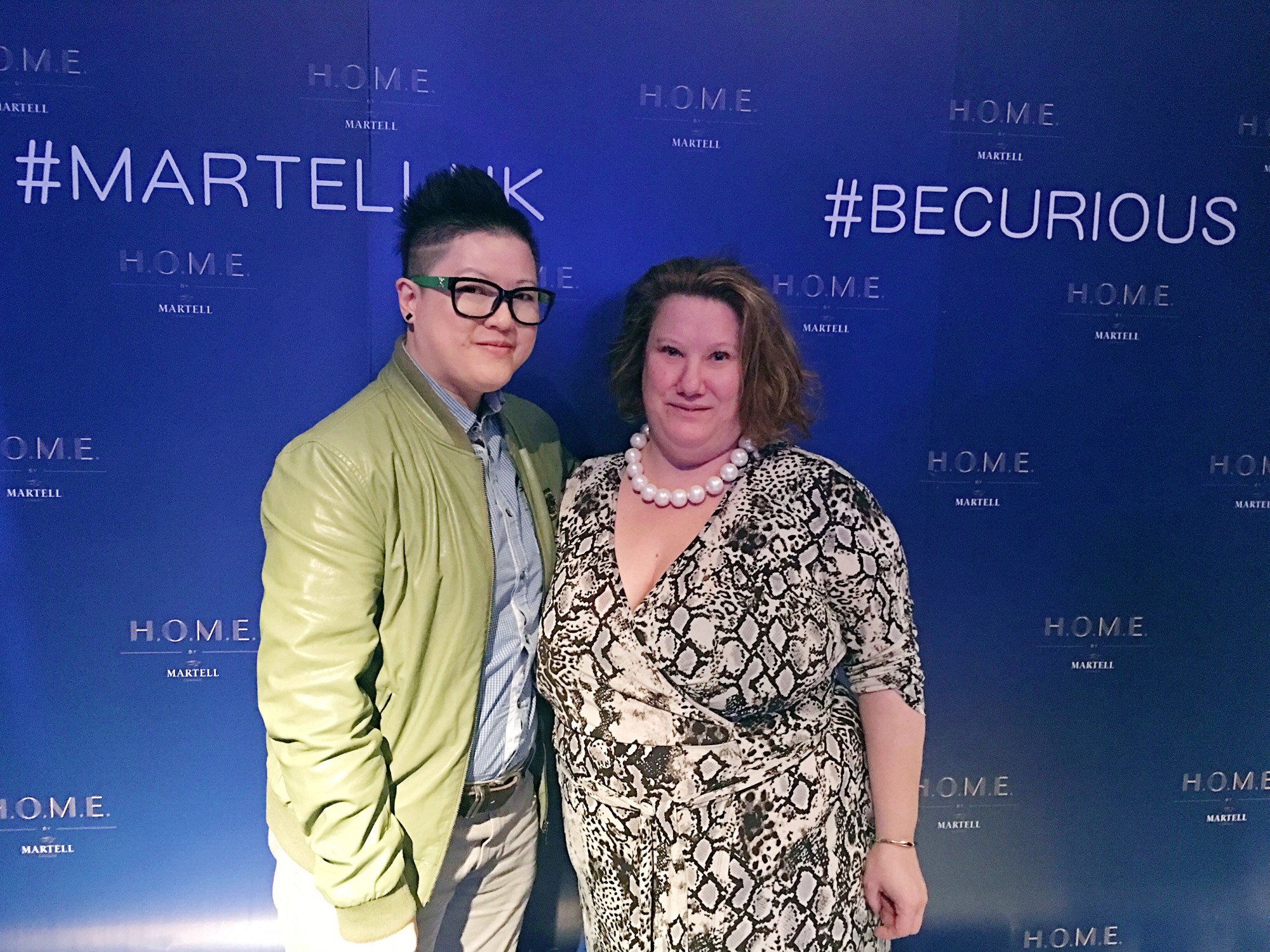
Depression to ultra running: one woman’s journey putting ‘one foot in front of the other’ in life and on the trails
- Betty Grisoni completes a 50km ultramarathon, having taken up exercise and healthy eating as a way to combat mental and physical ill health
- Grisoni wants other women in their 50s to avoid negativity, thinking that their best days are behind them, by starting their own journeys
As Betty Grisoni crossed the finish line of the Hong Kong West 50km on Tuesday, she had travelled further than just the kilometres that day. She was on a journey that started in 2018, when she worried she would die.
Grisoni, 52, suffers from depression. Her mental illness was manifesting itself physically too, and was labelled morbidly obese. She had become suicidal. After a long weekend in 2018 of partying at Clockenflap, the two-day music festival in Hong Kong, she was overwhelmed by panic.
“My mental health was paired with my physical health. My physical health was a consequence of my mental health,” said the Hong Kong-based Corsican.
“I got scared. I’m going to get to 50 and I’m going to die, I thought. Death was breathing down my neck. It’s fine to be a large person, but I was getting to the stage when I couldn’t walk properly, I couldn’t breath properly.”

She booked herself in for two days of medical tests. She was mostly healthy apart from her very high cholesterol.
The doctor said it was too late for simpler remedies, like a healthy diet or exercise. She would need to take pills for the rest of her life. After all, he assumed, she was middle-aged, obese and menopausal so it was too late to bother trying anything but the pills.
Top Nepali ultra-runner lifting women out of poverty with Hong Kong support
“I went home with my medication and I cried for a couple of days, but I said ‘come on there is something I can do’. I’m not opposed to medication, but surely the there was something. I changed my life completely,” Grisoni said.
Initially, Grisoni explored surgery and even an expensive dietitian. In the end, her algorithm noticed her search history and recommended a simple diet app that changed her life. She lost 73kg and began to gain control over her depression.
Once again, she found another app to train for a 5km run.
“I needed a goal and a routine. I found something to get out of my head and focus. With depression, you overthink,” Grisoni said.
“When you are in deep down depression you cannot do anything, but with a routine you can. In the beginning I would write down even the most simple things – wake up, brush your teeth, go for a run.”

Grisoni soon completed her 5km run, and began to extend her distances. She was out on the trails, running and it was bringing untold benefits to her health.
In trail running, you at least have to focus on where you are placing your feet. This pulled Grisoni out of her of own mind.
More than that, long distance runners listen to their bodies and deal with issues before it's too late. Like eating when they are hungry, or applying cream to chafe before it blisters. This skill began to seep into her daily life, off the trails.
“I know my body and my mind. If I get triggers I start to deal with it. Sometimes I actually write it. I write, ‘today I’m sad and it’s bad’. And I go to my room and close my door. But I deal with it now. Like on the trail, you fall, and it’s bad, you are bleeding. Fine, cry, that’s OK. But you deal with it.”

“When you are depressed, you ignore the signs until it’s too bad to deal with,” she said.
Grisoni ran the Hong Kong West 50km on her own. Her watch battery, which had her route on it, died. So she was navigating with her phone and frequently took wrong turns. As a result, it took her far longer than anticipated. There was a nearby bush fire, so helicopters roared overhead, adding to the intensity of the experience.
She could have given up when her watch died, and come back for another go on another day, as it was a virtual race.
How runners can prevent and cure IT band injuries
“I asked myself, why am I doing this? And then I realised, it’s all in the mind,” she said.
“If someone said to me I was going to do this two years ago, I would have said, no I could not run down a mountain in the dark. Impossible. Impossible. Impossible,” Grisoni said.
“This is for superhumans, I thought. Some people can do it, but a small group. Or it’s for someone who’s always been sporty. Now, I thinking of 100km.”
“But depression is always something I will bear. It has not gone away, but I am aware. In trail running, I became aware of what is going on around me but also what is going on in me. My body now tells me when I am no well, this is something I had forgotten. I’d just completely ignored it when I was overweight.”
Grisoni also bristles at the stereotypes flung at middle aged women after menopause, that they cannot change and their best years are behind them.
“If you want to do something, just try. You might fail, you might not fail. I wish I’d met someone like me when I started my journey who could have said ‘just try’. I became morbidly obese, depressed and then an ultra trail runner in my 50s.”
Grisoni’s 50km journey mirrors many of the challenges she has faced mentally over the last few years.
“Yes, it’s hard, but like in an ultra you can ride the hard parts,” Grisoni added. “Focus on one foot in front of the other. It’s the same thing in running and in depression. Move forward, even if it’s a little or if it’s really slow.”

